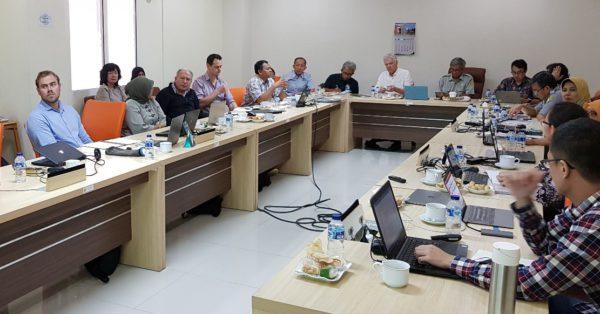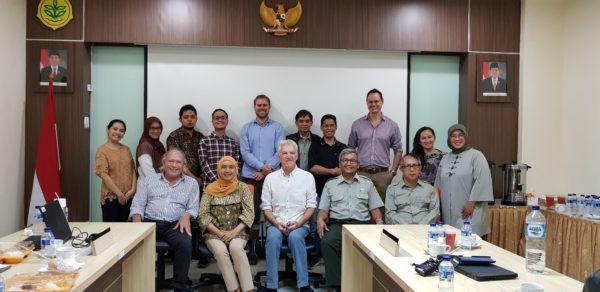Policy research to support Indonesia’s upland landscapes
Blog post prepared by Sacha Amaruzaman
The IndoGreen project had the second Advisory Group Meeting in Bogor on 4th February 2019.
An important research gap in the study of Indonesia’s upland catchments is the lack of recent analysis examining how economic policies shape farm household land use decisions. Past research focuses attention on land expansion, especially into forested areas rather than on how policies influence land management practices, production externalities and environmental outcomes on existing plots. Analysing the socioeconomic and environmental impacts from agricultural practices and communicating the policy implications to local and national decision makers is a priority research issue.
IndoGreen project’s research activities provide an understanding of how existing national and local policies (e.g., public investments, property rights, extension, fertiliser and water subsidies, trade policies, and taxes) influence farm household decisions that result in these environmental externalities. The research seeks to identify how alternative policies and incentive strategies can improve economic, social and environmental outcomes.
The representatives of IndoGreen project sites from the World Agroforestry Centre (ICRAF) (South Sumatra), Indonesian Centre for Agricultural Socio Economic and Policy Studies (ICASEPS) (West Java), and World Wide Fund for Nature (WWF)(Jambi) shared the progress in each upland site with the project Advisory Group Committee.
The Committee, which consists of the senior officials from the national government (Achmad Suryana of the Ministry of Agriculture), national universities (Ernan Rustandi of IPB University and Mia Siscawati of the University of Indonesia), and NGO (Edi Purwanto of TropenBos), conveyed their appreciation of the progress achieved in each site.

IndoGreen Advisory Group Meeting. Photo by Henri Perkasa/IndoGreen
The project team has carried out in-depth interviews and focus group discussions with the key stakeholders, to have a more detailed understanding of the issues and policies in the upland landscapes.
The Advisory Group highlighted the cross-cutting issues, such as the national policies on the social-forestry, food security, coffee productivity, and migration that are shared between the three sites.

IndoGreen Project Team. Photo by Henri Perkasa/IndoGreen
The IndoGreen project aims to evaluate the environmental and agricultural policies in the upland landscape of Indonesia. The research activities combine the socio-economic with the ecological research to simulate the agri-environmental policy impact in the upland, from the farm household to the catchment level.
The project is led by Prof. Randy Stringer from Centre for Global Food and Resources (GFAR), in collaboration with the other partners in Indonesia (ICRAF, ICASEPS and WWF) and Australia (University of New England and Australian National University). The project is funded by Australian Centre for International Agricultural Research (ACIAR).
Currently the team from GFAR has led the design of questionnaire for the household survey in the three sites, in close collaboration with the three Indonesian local partners. The first household survey in Pagar Alam, South Sumatra is scheduled to be implemented in March 2019.
